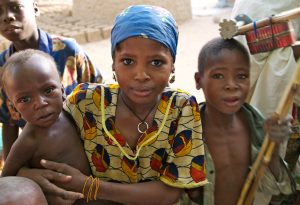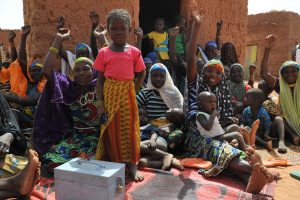By William Beeker

Source: Wells Bring Hope
Modern contraception is a vital tool in women’s empowerment and the fight for gender equality. In countries like Niger, where gender inequality is still highly prevalent, contraception use for married women is about 14%, compared with 30% across Africa and 55% globally. This is troubling for a few reasons.
Firstly, about 75% of Nigerien girls are married before they’re 18-years-old, which means they start having children at an extremely young age, which results in frequent complications, and even mortality, for both mothers and babies. It also means that young girls are unable to attend school because they’re tasked with caring for children. Without an education, women have access to fewer economic opportunities and inevitably become more deeply entrenched in their roles as caretakers.
These consequences combine to narrowly limit a Nigerien woman’s possible opportunities. Getting married and having kids comes to seem like the only way forward, which reinforces the motivation to have kids, which maintains these adverse consequences, and so on, perpetuating a cycle that can be difficult to overcome. Contraception use is something that can disrupt this cycle and give young women more autonomy in the decision to conceive.
Young women, especially those who are married, face immense societal pressure to conceive, and in a country where large families (10+ children) are still the norm, it means these women spend the bulk of their young lives pregnant or caring for very small children. The pressure to conceive is so deeply ingrained that many women who manage to get access to contraceptive methods end up discontinuing use. A recent study found that in Niger, 96.8% of young women who started using contraception discontinued use while still at risk of getting pregnant. Respondents cited pressure from their husbands and families as the primary reasons for stopping contraception.
This deeply rooted cultural norm has contributed to one of the highest fertility rates in the world (7.3 children per woman in Niger, compared to an average of 4.6 across Africa and 2.5 globally). With Niger’s population on track to triple by 2050, its government has rightfully put more emphasis on family planning in recent years, with contraception playing an important role. However, in Niger, the cost of modern contraceptives can be prohibitive.

Source: Wells Bring Hope
The microfinance training that Wells Bring Hope provides enables women to become more financially independent, which can delay early marriages, lower maternal mortality, and provide women with the resources to pay for contraception. By drilling wells, women and girls are freed from the daily burden of finding and retrieving water, which allows them to attend school and further improve their situation. Contraception, education, and economic opportunity are all crucial to making Niger a safer and more sustainable place for everyone, especially women and children.
Sources:
https://bmcwomenshealth.biomedcentral.com/articles/10.1186/s12905-021-01326-0
https://womendeliver.org/2018/bridging-education-contraception-climate-change-niger/


